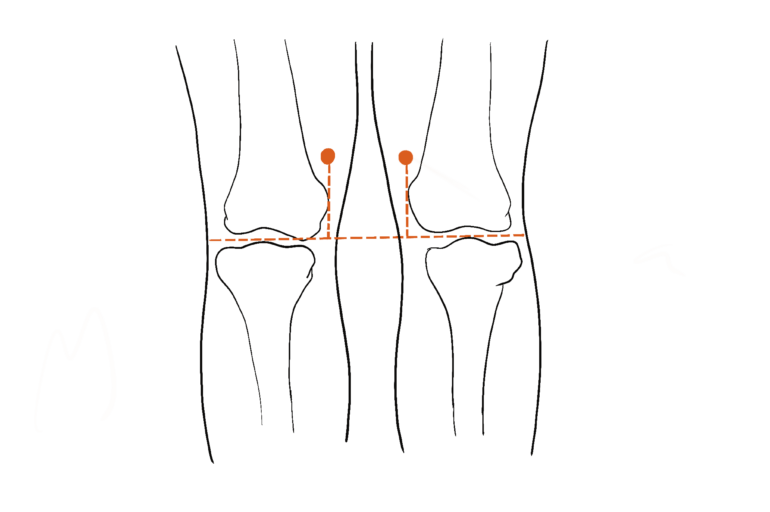Menstruation refers to the shedding of the lining of the uterus (endometrium) accompanied by bleeding. This usually occurs monthly throughout a woman’s reproductive life, except during pregnancy. Menstruation starts when a woman experiences puberty and stops permanently after menopause.
The menstrual cycle is defined as the first day of bleeding of one cycle to the first day of menstrual bleeding of the next cycle, and the length of the menstrual cycle varies among different women. Normally, regular menstrual cycles range from about 21-35 days and the average is 28 days. [1][2] The menstrual period usually lasts around 2-7 days and on average women will lose about 20-90 ml of blood in a period. [3]
The menstrual cycle is regulated by hormones such as Follicle-stimulating hormones (FSH), Luteinizing hormone (LH), estrogen and progesterone. When females reach puberty, the hypothalamus will send signals to pituitary glands to release FSH and LH. These will trigger the secretion of estrogen and progesterone that are required for ovulation and the formation of endometrium lining for fertilization. When there is no fertilization, estrogen and progesterone levels decrease and the endometrium lining starts shedding, resulting in the start of the next menstrual cycle.
What is the TCM’s perspective on menstrual periods?
女子二七而天癸至, 任脉通,太冲脉盛, 月事以事下
According to the Inner Canon of the Yellow Emperor (黄帝内经) ,menstrual cycles usually occurs at the age of 14 in which the congenital Kidney essence (天癸) arrives, the flow in Ren meridian (任脉) opens up and the energy in Chong meridian is sufficient. The congenital Kidney essence (天癸) is given from our parents upon conception which is further nourished by the Kidney essence (肾精) and the essence from food transformation by the Spleen (脾) as we age (先天天癸始父母,后天精血水榖生).
Besides being in the food transformation, the Spleen also plays an important role in blood production. The Liver (肝) harmonizes the blood and Qi in the body meridians and connects them to Chong (冲脉) and Ren (任脉)meridians at the lower abdomen.
The Chong meridian acts as a blood reservoir for the uterus while Ren meridian regulates the uterus. A menstrual cycle occurs when there is an abundance of congenital Kidney essence and a balance of Kidney, Spleen and Liver functions to ensure a surplus of blood and Qi flowing to the uterus.
In TCM perspective, a menstrual cycle can be viewed in four phases:
1. Menstrual flow: the descending flow of energy and blood to expel old blood for the regeneration of new blood.
2. Post-period: new blood and essence is needed to renourish the body and this can be achieved by strengthening the Kidney and digestive functions. The new blood plays an important role as it prepares the uterus for implantation and pregnancy.
3. Ovulation: an increase in Kidney function which stimulates the ovaries for ovulation
4.Pre-period: the Kidney’s Yang energy facilitates the implantation of the fertilized egg. When there is no implantation, the Yang energy will peak and decline as the menstruation begins again.
Regularity of menstrual cycles is considered an indicator for women’s reproductive health, and there are various reasons that can lead to changes in the menstrual cycle. A study has shown that 9% to 14% of women experienced irregular menstrual cycles. [4] So what is defined as an irregular menstruation?
Irregular menstrual cycles can be defined by either shorter or longer menstrual cycles than usual; either heavier or lighter flow than normal; or are experienced with other problems like lower abdominal cramps.
The most common types of irregular menstruation are:
| Abnormal menstrual cycles:
When a cycle is shortened or delayed for more than 7 days and lasts for 2 consecutive menstrual cycles. |
|
| Short menstrual cycles (月经先期) |
A menstrual cycle that is shorter than 21 days for at least 2 consecutive cycles. |
| Delayed menstrual cycles (月经后期) |
Delayed menstrual cycle that is longer than 35 days for 2 consecutives menstrual cycles. |
| Irregular menstrual cycles (月经先后不定期) |
Irregular and inconsistent menstrual cycle in which shortened or delayed cycles for at least 3 consecutive menstrual cycles. |
| Bleeding between periods aka spotting (经间期出血) |
Bleeding that occurs between periods. |
| Abnormal menstrual cycles:
When a menstruation period is shorter than 2 days or prolonged more than 7-14 days. |
|
| Short menstruation period (月经过少) |
A period that lasts for 2 days or less. |
| Prolonged menstruation period (经期延长) |
A period that lasts beyond 7-14 days. |
| Abnormal menstrual cycles:
Spotting or prolonged bleeding for more than 5-7 days after a menstruation period. |
|
| Prolong menstrual bleeding/ heavy bleeding | Menstrual bleeding that lasts more than 7 days.
How do you know if you are experiencing heavy bleeding?
If you have to change your sanitary pad (regular day-used size, 20-22cm) or tampon after less than 2 hours, it is considered as heavy bleeding. [7] |
| Light menstrual bleeding | Menstrual bleeding lasts for a short duration of 2 days and the flow is less than 50 ml of blood [8] ,approximately 1-2 regular day-used size pads daily. |
| Painful periods | Most women would experience menstrual pain for 1 to 2 days monthly. Usually, the pain is mild, however for some women, the pain is so severe that it affects their daily routines for several days. |
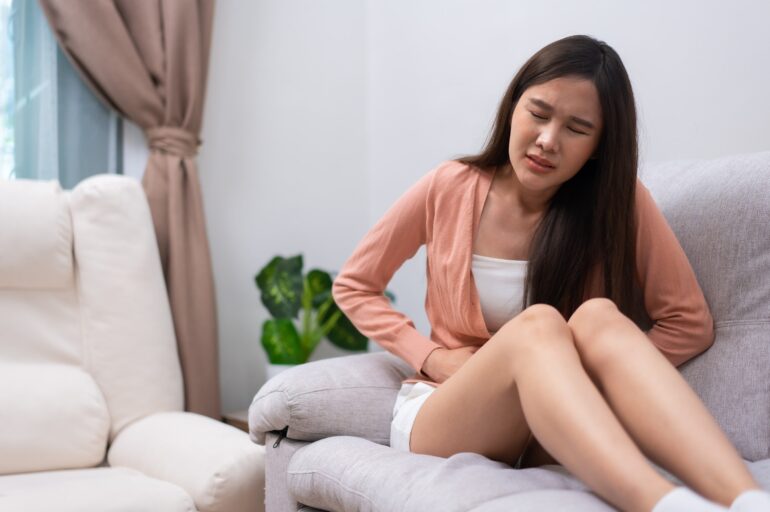
Common causes of irregular periods (excluding pregnancy): [5-7]
- Stress
- Irregular diet or eating disorder that can lead to extreme weight loss or weight gain
- Underlying medication conditions such as thyroid dysfunction, uncontrolled diabetes, polycystic ovary syndrome (PCOS), endometriosis, uterine fibroids and pelvic inflammatory disease
- Usage of certain medications such as hormonal birth control pills, medications used to treat mental health problems or epilepsy and steroids
From TCM perspective, irregular periods are often caused by reduced blood production due to an exhaustion in blood and essence that weakens the body. It may be due to Blood stasis or Dampness that result in stagnation of blood flow which obstructs the channels in the body. It also views irregular periods as an imbalance between the Yin and Yang, especially the Spleen, Kidney, and Liver.
Studies have shown that irregular and long menstrual cycles have been associated with an increased risk for certain conditions and diseases. Here’s are some health complications [9]:
- Infertility
- Cardiovascular disease such as high blood pressure
- Type 2 diabetes
- Cancer, commonly associated with endometrial cancer, uterine cancer
- Iron deficiency anemia
Hence, you should start to be worrying about your irregular periods (with the exclusion of pregnancy):
- You are 16 years old or older and still have no periods
- You have started your period but havent had one for 3 to 6 months
- Consistently having abnormal vaginal bleeding or spotting especially after menopause or sexual intercourse
- You can feel a lump at the lower part of tummy
Can TCM help with irregular menstruation?
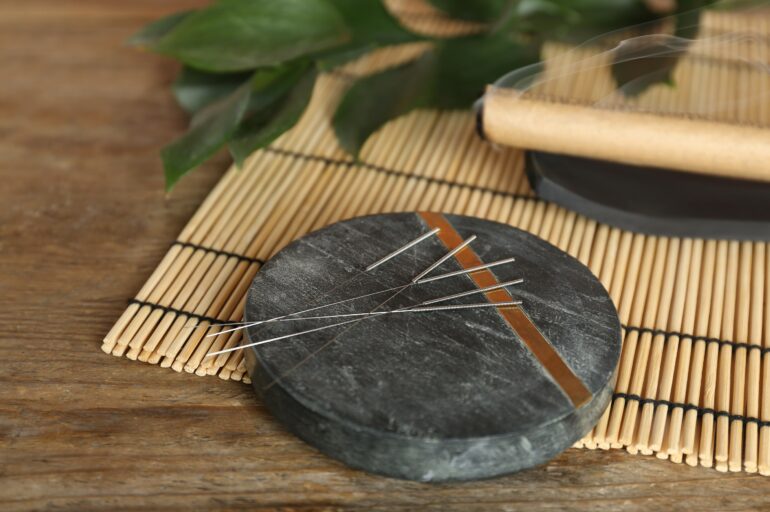
The answer is yes, TCM can help to regulate irregular menstruation based on your body constitution and symptoms by balancing the body’s Yin and Yang through:
1. Acupressure massages
Performing acupressure on specific points to help in the overall blood circulation as well as improving the womb health. Here are some recommended acupoints:
i. San Yi Jiao (SP 6)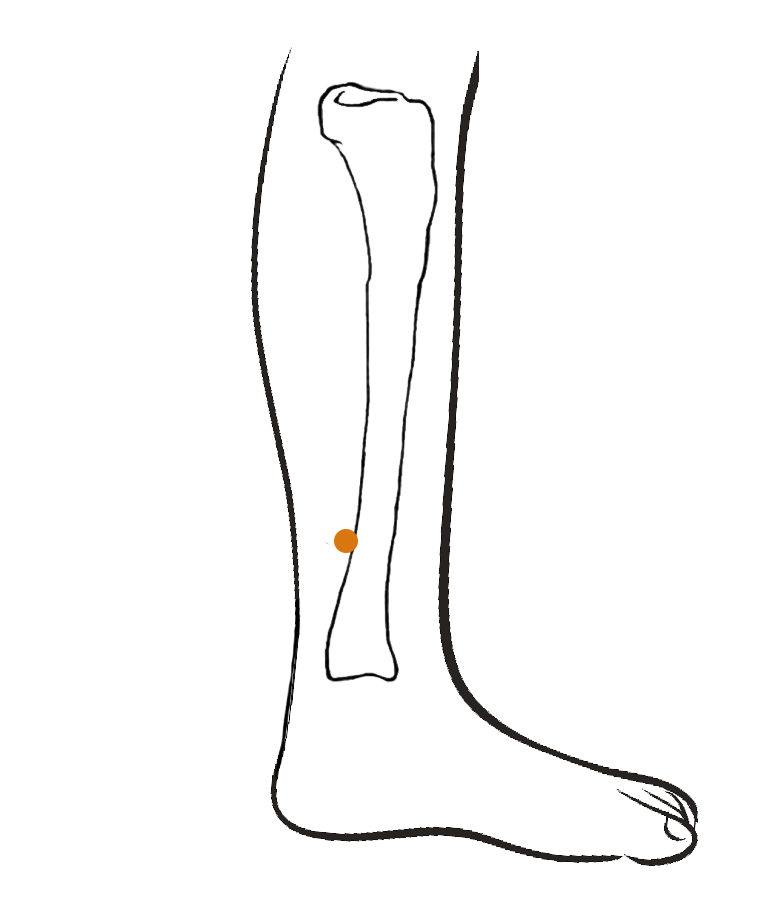 |
Location: On the inner side of the lower leg, 4 fingers above the ankle.
Benefits: Nourishes Yin and regulates menstruation. Direction: Press the point with your thumb, and gently massage the point using clockwise directions for 5-10 mins daily 1 week before your period. |
| ii. Xue Hai (SP 10)
|
Location: With knee flexed, 3 fingers above the kneecap on the inner thigh where you can feel the bulge of quadriceps.
Benefits: Regulate menstruations by removing stasis of blood and tonifies the blood. Direction: Press the point with your thumb till you feel soreness and massage the point in circular motion for 3-5 mins daily 1 week before your period.
|
| iii. Tai Chong (LR 3)
|
Location: On top of the foot, in the webbing between your big toe and second toe. You should be able to feel a depression between the bones right before the joint.
Benefits: Regulates menstruation by regulating Liver Qi, nourishing Liver Yin and subduing Liver Yang. Direction: Press the point with your thumb till you feel soreness and massage the point in circular motion for 5-10 mins every night before your sleep.
|
2. TCM recipes to aid in regulating periods
i. Eight Treasure soup (八珍汤)
Ingredients: Dang Shen (党参) 10g, Bai Zhu (生白术) 10g, Fu Ling (茯苓) 15g, Gan Cao (甘草) 6g, Shou Di Huang (熟地黄) 10g, Dang Gui (当归) 10g, Bai Shao (白芍) 10g, Chuan Xiong (川芎)
Alternatively, you can get ready-packed soup packs from supermarkets or TCM halls.
Preparation: Soak the herbs for 20 mins, after which add water, 5-10 red dates, 3 slices of ginger and pork ribs. Boil the soup under slow fire for 1-2 hours and serve it warm.
Benefits: Nourish the Qi and Blood in the body
ii. Ejiao porridge (阿胶粥)
Ingredients: E jiao (阿胶) 30g, Glutinous rice (糯米) 100g
Preparation: Firstly, boil the glutinous rice with an appropriate amount of water to make porridge. After which, add in the crushed E-jiao, stir the porridge evenly while cooking. Once the E-jiao has melted, it can be consumed after adding brown sugar.
Benefits: Nourish the Blood in the body (suitable for individuals with blood-deficiency or with low menstrual blood flow)
iii. Red date longan tea (红枣桂圆茶)
Ingredients: 15 Red dates (红枣), Longan (桂圆肉) 10g
Preparation: Soak the red dates and longan for a few mins, add an appropriate amount of water and use slow fire to boil the soup for 30 mins which can be consumed as tea after which.
Benefits: Nourish the Blood in the body (suitable for individuals with blood-deficiency or with low menstrual blood flow)
How do we help patients with irregular menstruations here at Oriental Remedies Clinic?
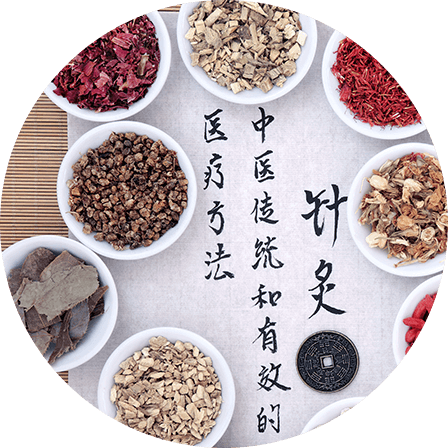
Customized concoctions of various TCM herbs can be tailored to an individual’s body constitution and condition to aid in regulating menstruation by nourishing the Liver, Spleen and Kidney as well as improving blood circulation . Examples of these herbs include Dang Gui (当归),Chuan Xiong (川芎), Xiang Fu (香附), Bai Shao (白芍).
Note: Please do not self medicate, always consult a trusted physician for a herbal prescription.
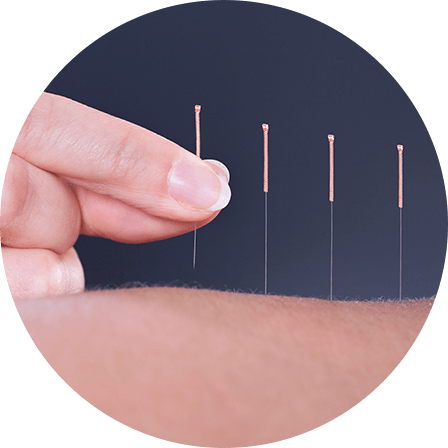
Acupuncture can help with irregular periods via various ways.[10] Firstly, it activates the “energy gateways” to remove the Qi stagnation in the body or blockages in the body’s meridian. This improves the blood circulation especially in the pelvic area where the womb is located as acupuncture can stimulate energy and blood supply. Secondly, it can strengthen the body’s energy level and immune system which will aid in the elimination of pathogens that create internal disharmony. Lastly, acupuncture can help to regulate Yin Yang harmony. When there is a balance between Yin and Yang in the body, the health will improve. The points that are frequently used to administer acupuncture for irregular periods are San Yin Jiao (三阴交) SP6, Xue Hai (血海) SP10, Tai Chong (太冲) LR3, Tai Xi (太溪) KI3,Zu San Li (足三里) ST36, Qi Hai (气海) CV6, Guan Yuan (关元) CV4. These points help to nourish the Liver, Spleen and Kidney, remove Qi-stagnation and improve blood circulation which helps to regulate periods.
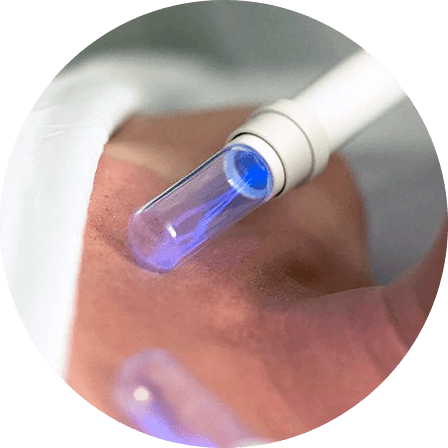
Electro Lymphatic Therapy (ELT)
ELT is a gentle and non-invasive therapy that stimulates proper flow and drainage of the lymphatic system, simulating the effects of lymphatic drainage massage of tuina without the pressure and pain. ELT can help to clear toxins, maintain balance in our body fluids and improve blood circulation. This relaxes the abdominal muscles, minimising menstrual cramps.
Other lifestyle habits to help improve the regularity of your periods [11]:
Do’s
- Exercise regularly, it is recommended for an individual to exercise for at least 150 mins of moderate to vigorous physical activity weekly as it can help to regulate hormone levels, boost mood and may also reduce period cramps.
- Maintain a healthy weight (Body mass index (BMI): between 18.5-22.9)
- Eat more vegetables and fruits, whole grain food like oats
- Reduce consumption of foods that are high in saturated fats
- Reduce stress
- Keep yourself warm during period and avoid exposing your tummy
- During period, maintain good personal hygiene by changing sanitary pads regularly
Don’t
- Sedentary lifestyle
- Irregular meals or unhealthy diet
- Excessive consumption of raw and cooling food as well as oily and spicy foods
- Staying in an air-conditioned environment for too long
Your healing is the most important!
Are you or your bestie experiencing symptoms of irregular menstruation? Call/Whatsapp +65 8742 2163 today to take charge of your menstrual health with trusted bilingual physicians.
—–
This article is written by Physician Eileen Lim (Oriental Remedies Group, Singapore), a registered TCM physician certified by the Traditional Chinese Medicine Practitioners Board (TCMPB).

Disclaimer:
The content on this page is for information and educational purposes only. Such medical information may relate to disease, injury, drugs and other treatments, medical devices and/or health products. Medical information does not amount to advice, and if advice is needed an appropriate professional help should be sought. The disclaimer asserts that no warranties or representations are given in respect of the medical information, and that the website operator should not be held liable if a user suffers any injury or loss after relying upon the medical information.
Any devices used for technology-enhanced therapies are intended for use only for general well-being purposes or to encourage or maintain a healthy lifestyle, and is not intended to be used for any medical purpose (such as the detection. diagnosis, monitoring, management or treatment of any medical condition or disease). Any health-related information provided by this device or software should not be treated as medical advice.
References:
[1]: American College of Obstetricians and Gynecologists (ACOG). (2012). FAQ: Abnormal uterine bleeding. Retrieved on May 24, 2016, from http://www.acog.org/Patients/FAQs/Abnormal-Uterine-Bleeding
[2]: Reed BG, Carr BR. The Normal Menstrual Cycle and the Control of Ovulation. [Updated 2018 Aug 5]. In: Feingold KR, Anawalt B, Blackman MR, et al., editors. Endotext [Internet]. South Dartmouth (MA): MDText.com, Inc.; 2000-. Available from: https://www.ncbi.nlm.nih.gov/books/NBK279054/
[3]: NHS. (2023, January 5). Periods and fertility in the menstrual cycle. NHS choices. Retrieved April 28, 2023, from https://www.nhs.uk/conditions/periods/fertility-in-the-menstrual-cycle/#:~:text=The%20length%20of%20the%20menstrual,day%20before%20her%20next%20period
[4]: Gordon CM, Ackerman KE, Berga SL, et al: Functional hypothalamic amenorrhea: An Endocrine Society clinical practice guideline. Clin Endocrinol Metab 102 (5):1413–1439, 2017. doi: 10.1210/jc.2017-00131
[5]: Munro, M. G., Critchley, H. O., & Fraser, I. S. (2012). The FIGO systems for nomenclature and classification of causes of abnormal uterine bleeding in the reproductive years: Who needs them? American Journal of Obstetrics and Gynecology, 207(4), 259–265.
[6]: Lin HT, Lin LC, Shiao JS. The impact of self-perceived job stress on menstrual patterns among Taiwanese nurses. Ind Health. 2007 Oct;45(5):709-14. doi: 10.2486/indhealth.45.709. PMID: 18057815.
[7]: Yamamoto K, Okazaki A, Sakamoto Y, Funatsu M. The relationship between premenstrual symptoms, menstrual pain, irregular menstrual cycles, and psychosocial stress among Japanese college students. J Physiol Anthropol. 2009;28(3):129-36. doi: 10.2114/jpa2.28.129. PMID: 19483374.
[8]: Kallenerson, A. (Ed.). (2022, March 17). Light periods: Common reasons why you’re bleeding less. Flo.health – #1 mobile product for women’s health. https://flo.health/menstrual-cycle/light-period
[9]: Mount Sinai . (n.d.). Menstrual disorders. Mount Sinai Health System. https://www.mountsinai.org/health-library/report/menstrual-disorders\
[10]: Wang, Junting MM; Zhang, Heran MM∗. Efficacy and safety of acupuncture for irregular menstruation: A protocol for Bayesian network meta-analysis and systematic review. Medicine Case Reports and Study Protocols 2(12):p e0203, December 2021. | DOI: 10.1097/MD9.0000000000000203
[11]: Wilson, D. R. (2019, March 22). Irregular periods: What home remedies could help?. Medical News Today. https://www.medicalnewstoday.com/articles/324781#reduce-stress


